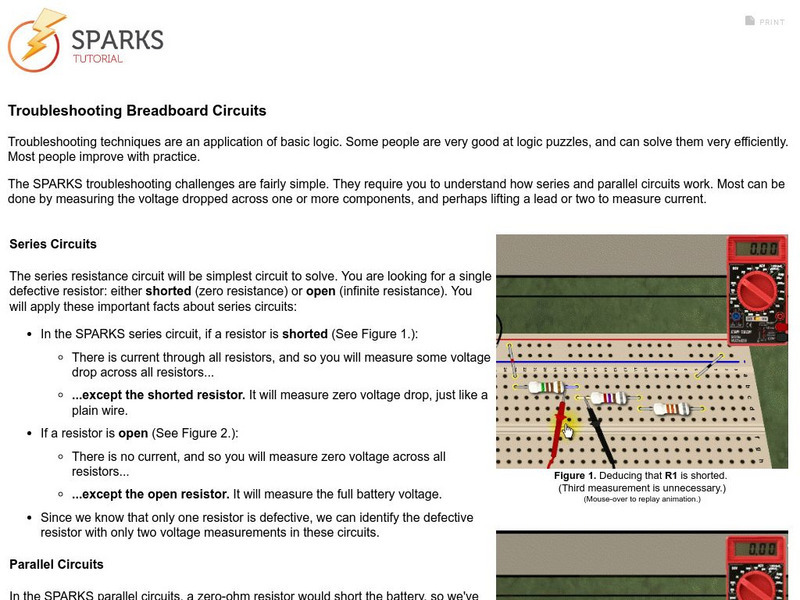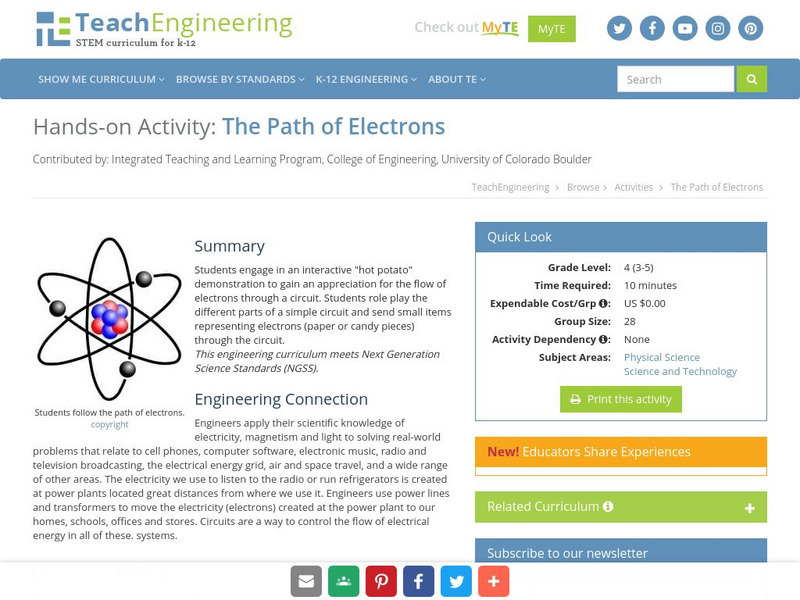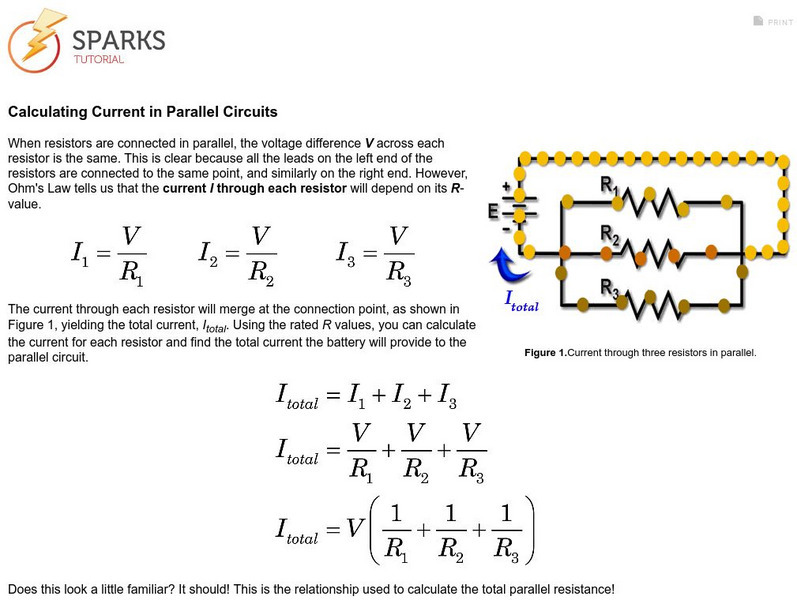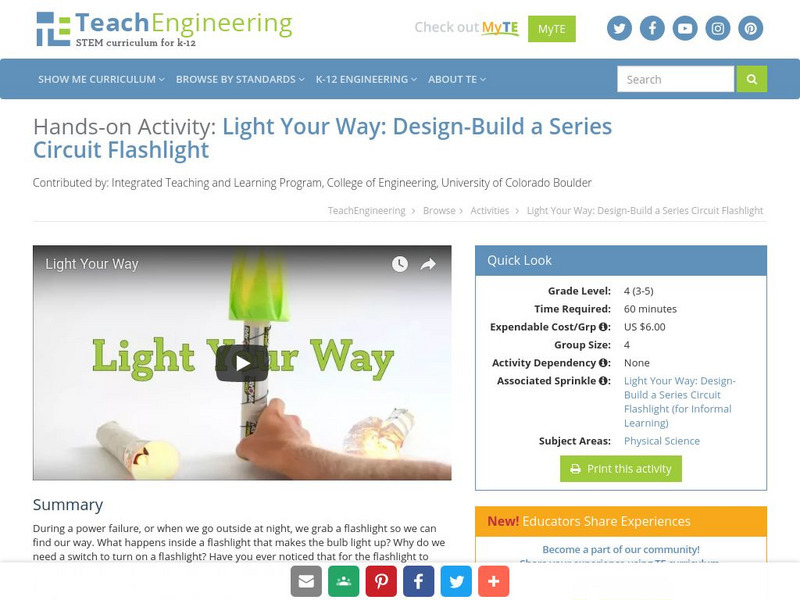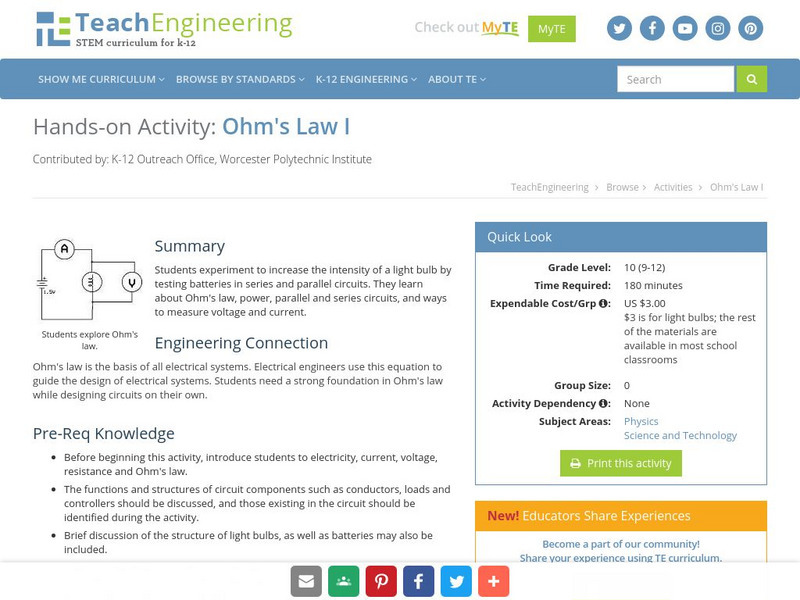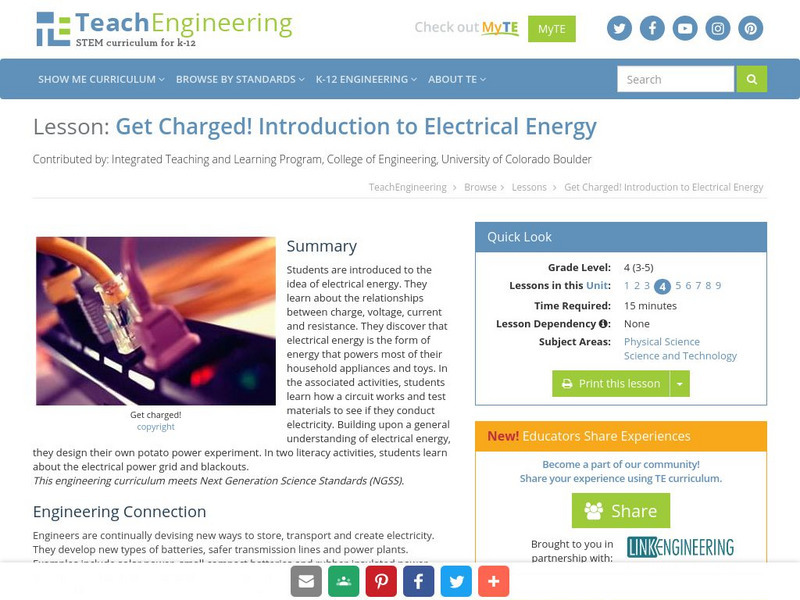Concord Consortium
Mobile Inquiry Technology: Parallel Versus Series Circuits
For this lesson, students actively investigate the differences between parallel and series circuits and how the brightness of bulbs is affected.
Concord Consortium
Concord Consortium: Troubleshooting Breadboard Circuits
Try these SPARKS troubleshooting breadboard circuit challenges.
Concord Consortium
Concord Consortium: How Do Breadboards Work?
See how a breadboard electrical circuit works.
TeachEngineering
Teach Engineering: The Path of Electrons
Students engage in an interactive "hot potato" demonstration to gain an appreciation for the flow of electrons through a circuit. Students role play the different parts of a simple circuit and send small items representing electrons...
Concord Consortium
Concord Consortium: Calculating Current in Parallel Circuits
Use Ohm's Law to calculate the current in parallel circuits.
TeachEngineering
Teach Engineering: Light Your Way
When there is a power failure, or when we go outside at night, we grab a flashlight so we can find our way. What happens inside a flashlight that makes the bulb light up? Why do we need a switch to turn on a flashlight? Have you ever...
TeachEngineering
Teach Engineering: Ohm's Law I
Students will work to increase the intensity of a light bulb by testing batteries in series and parallel circuits. It analyzes Ohm's Law, power, parallel and series circuits, and ways to measure voltage and current.
TeachEngineering
Teach Engineering: Bulbs & Batteries in a Row
Everyday we are surrounded by circuits that use "in parallel" and "in series" circuitry. Complicated circuits designed by engineers are composed of many simpler parallel and series circuits. During this activity, students build a simple...
Science and Mathematics Initiative for Learning Enhancement (SMILE)
Smile: Electromagnets
This lesson plan contains several activities designed to help the student understand the magnetic effects of an electrical current.
TeachEngineering
Teach Engineering: Get Charged!
Students are introduced to the idea of electrical energy. They learn about the relationships between charge, voltage, current and resistance. They discover that electrical energy is the form of energy that powers most of their household...
Science and Mathematics Initiative for Learning Enhancement (SMILE)
Smile: Electrochemistry
A teacher lesson plan which could be easily converted into an idea for a student project or presentation. This page describes activities in which the interconversion of chemical and electrical energy are investigated. Complete activity...

